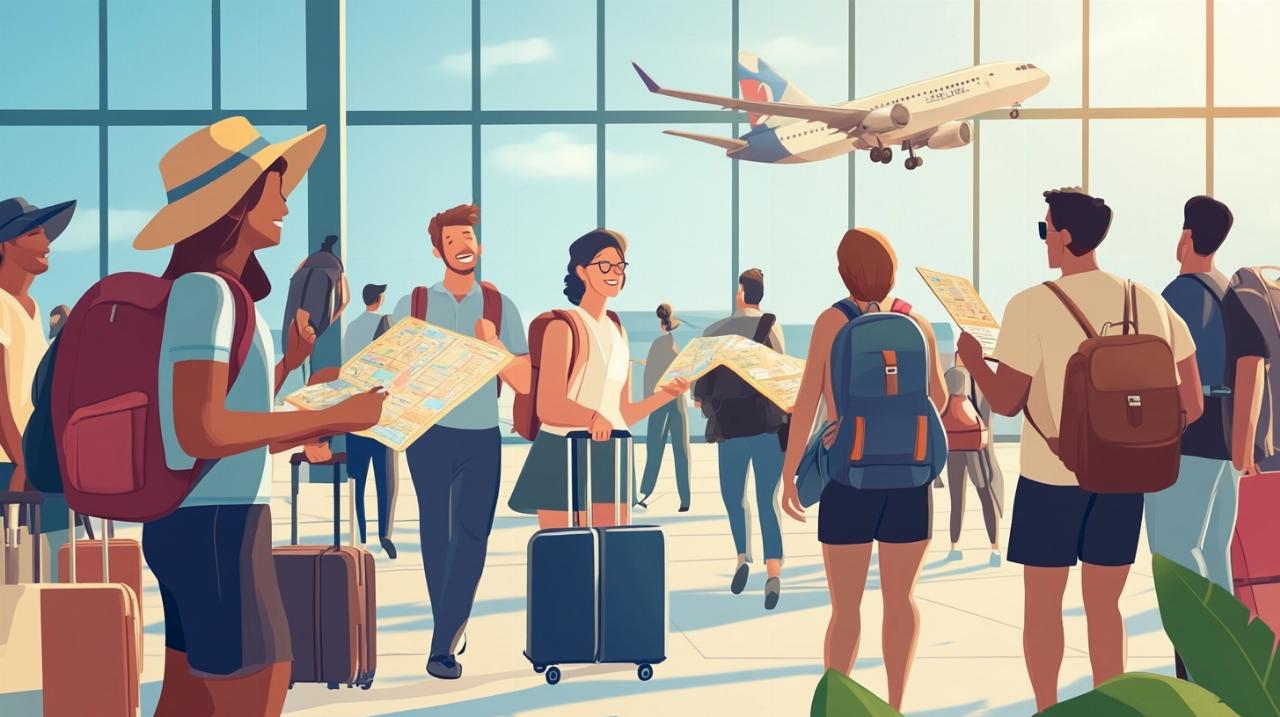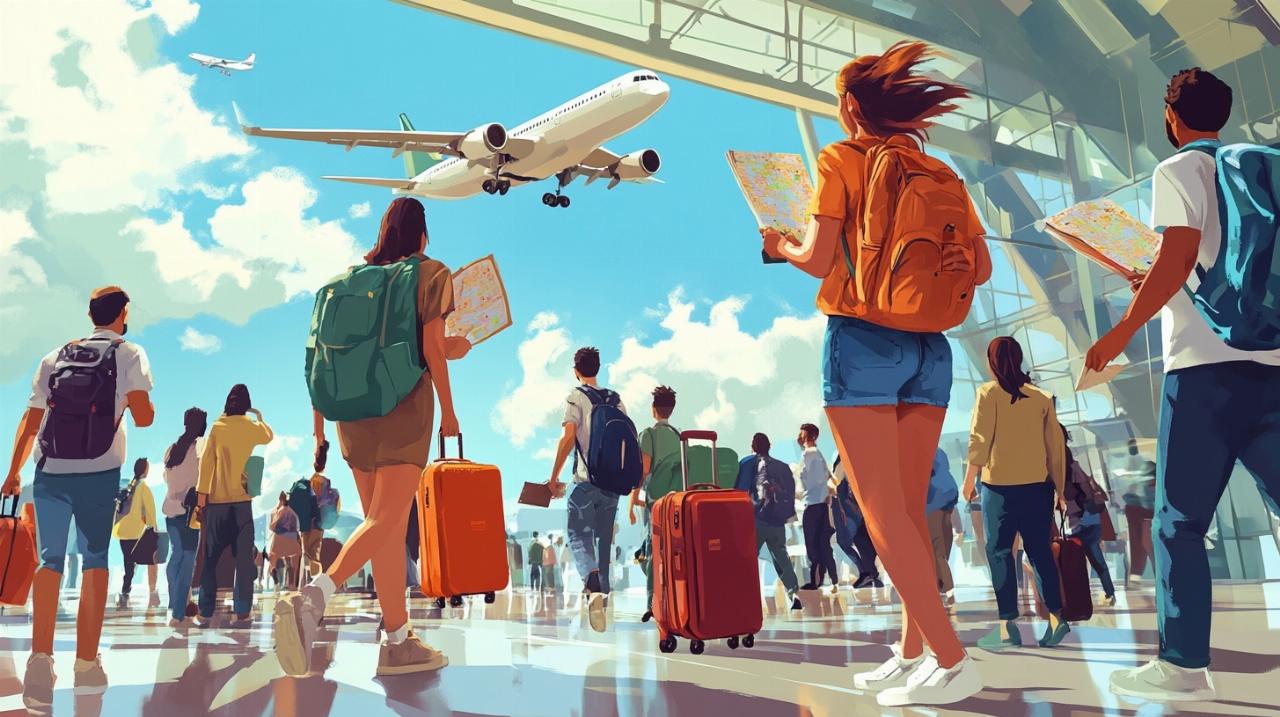
Embarking on a journey can be both exciting and overwhelming. Whether you're a seasoned globetrotter or a first-time traveller, having the right approach can transform your experience from stressful to spectacular. The key to hassle-free travel lies in thorough preparation, smart packing, and maintaining flexibility throughout your adventure.
Planning your journey like a pro
The foundation of any successful trip begins long before you leave your doorstep. Savvy travellers know that proper planning eliminates most potential headaches along the way. Starting your preparations early gives you access to better deals and ensures you don't miss out on must-see attractions. The travel experts at https://www.4travelinfo.com/ suggest beginning your research at least two months prior to departure, especially for international destinations where visa requirements might apply.
Securing the Best Deals on Flights and Accommodation
Booking flights approximately eight weeks in advance often yields the most favourable rates. Consider setting up price alerts on comparison websites to track fare fluctuations. When it comes to accommodation, location should be your primary consideration—a centrally situated hotel might cost more but can save significant time and transport expenses. Look beyond traditional hotels as well; holiday lets, boutique guesthouses, and even house-sitting opportunities might offer better value and a more authentic experience.
Creating a realistic travel itinerary
An overly ambitious schedule is the downfall of many holiday plans. Rather than attempting to see absolutely everything, organise your activities by geographical region to minimise transit time. Build in buffer days with no specific plans to accommodate unexpected discoveries or simply to rest. Remember that travel is meant to be enjoyable, not exhausting—quality experiences trump quantity every time.
Packing strategies for smart travellers
The art of packing efficiently can make or break your travel experience. A well-packed bag means less physical strain, fewer baggage fees, and greater mobility. Start by creating a comprehensive packing list tailored to your destination, considering weather conditions and planned activities. The golden rule remains: pack what you think you need, then remove half.
Crafting the perfect packing list
Focus on versatile clothing items that can be layered and mixed to create multiple outfits. Dark colours tend to show less dirt and can transition easily from casual daytime exploration to evening dining. Include a basic first-aid kit with plasters, pain relief, and any prescription medications. Travel-sized toiletries not only save space but also comply with airline liquid restrictions. Essential electronics like adapters, chargers, and perhaps a power bank should make the cut, but consider leaving bulky items like hair dryers behind.
Space-saving techniques for your luggage
Rolling clothes rather than folding them creates more space and reduces wrinkles. Packing cubes help compartmentalise your belongings while compression bags can reduce the volume of bulky items like jumpers and jackets. Wear your heaviest items during transit and stuff smaller accessories inside shoes to maximise every inch of luggage space. These techniques not only help you stay organised but also make repacking throughout your journey much simpler.
Staying connected without breaking the bank
Maintaining communication whilst abroad has become essential for modern travellers, yet roaming charges can quickly accumulate. Thankfully, there are several cost-effective alternatives to keep you connected without emptying your wallet.
Options for mobile data abroad
Local SIM cards offer the most economical solution for extended stays in a single country. They provide local rates for calls, texts, and data usage. For multi-country itineraries, consider an eSIM, which allows you to switch between mobile providers without physically changing cards. Travel-specific data packages from your home provider might be convenient but check the terms carefully as they often come with usage limitations.
Setting up emergency communication plans
Before departure, ensure loved ones know your itinerary and establish regular check-in times. Store important contact information in multiple places, not just your mobile phone. Consider setting up a messaging group for family updates and download offline maps of your destinations. These simple precautions ensure you're never truly disconnected, even if technology fails.
Safety and Security on Your Travels
Staying safe whilst exploring new environments requires awareness and preparation. Most travel mishaps can be avoided with common sense precautions and respect for local conditions.
Protecting your valuables while exploring
Distribute your valuables rather than keeping them all in one place. Use a money belt or hidden pouch for important documents and larger sums of cash. Consider investing in slash-proof bags for crowded areas and never leave electronics unattended. Keep digital copies of important documents in secure cloud storage and email yourself copies as backup.
Understanding local customs and regulations
Research local laws and cultural norms before arrival to avoid inadvertently causing offense or breaking rules. This includes appropriate dress for religious sites, photography restrictions, and tipping customs. Being respectful of local traditions not only keeps you safe but often results in warmer welcomes and more authentic experiences. Taking time to learn about local customs can transform you from tourist to respectful visitor.
Health considerations for travellers
Maintaining your wellbeing away from home requires preparation and vigilance. Health disruptions can quickly derail travel plans, so taking preventative measures is time well spent.
Essential items for your travel medical kit
Beyond prescription medications, a well-stocked travel medical kit should include pain relievers, anti-diarrheal medication, motion sickness remedies, and antihistamines. Pack adequate supplies of sunscreen, insect repellent, and hand sanitiser. Some experienced travellers also recommend including rehydration salts, particularly for tropical destinations. Keep medications in their original packaging with labels intact to avoid customs issues.
Preparing for Health Requirements at Your Destination
Check vaccination requirements well in advance, as some immunisations require multiple doses spread over weeks or months. Research the availability and quality of healthcare at your destination and consider travel health insurance that covers medical evacuation if necessary. Familiarise yourself with common health risks specific to your destination, whether that's altitude sickness, particular insect-borne diseases, or food safety concerns.
Overcoming language barriers abroad
 Communication challenges can add complexity to travel, but they shouldn't prevent meaningful connections. With preparation and patience, language differences can be navigated successfully.
Communication challenges can add complexity to travel, but they shouldn't prevent meaningful connections. With preparation and patience, language differences can be navigated successfully.
Key phrases worth learning
Mastering a few basic expressions in the local language demonstrates respect and often elicits goodwill. Focus on greetings, please and thank you, numbers for shopping, and phrases to ask for help or directions. Practice pronunciation before arrival and don't be discouraged by imperfection—locals typically appreciate the effort regardless of execution.
Using translation tools effectively
Modern technology offers remarkable solutions for language barriers. Translation apps with offline capabilities ensure you're not dependent on internet access. Visual translation features can help decipher menus, signs, and documents. Remember that technological aids work best as supplements to basic language knowledge and good-natured gestures.
Document management for hassle-free travel
Proper handling of travel documentation prevents unnecessary stress and potential complications. A systematic approach to organising your paperwork serves as insurance against common travel disruptions.
Creating backup copies of important documents
Make physical photocopies of your passport, visa, insurance policies, and booking confirmations to keep separate from the originals. Store digital copies in cloud storage accessible from any device and share access with a trusted contact at home. Some travellers also recommend scanning boarding passes and hotel reservations into digital formats for easy retrieval.
Organising your travel paperwork
Use a dedicated travel document organiser with compartments for different categories of paperwork. Keep items needed at the airport easily accessible and arrange documents chronologically according to your itinerary. This system prevents frantic searching for information when you need it most, such as at immigration counters or hotel check-ins.
Managing your money whilst abroad
Financial preparation is crucial for stress-free travel experiences. Having access to funds through multiple channels provides security and flexibility throughout your journey.
Notifying your bank of travel plans
Contact your bank and credit card providers before departure to inform them of your travel dates and destinations. This simple step prevents legitimate transactions from being flagged as suspicious activity. Ask about international transaction fees and partner banks abroad where you might access services with reduced charges.
Smart Ways to Carry and Access Funds
Diversify your payment options by carrying a mix of cards and cash. Consider specialised travel cards that offer favourable exchange rates and lower fees. Never exchange currency at airports where rates are typically unfavourable; instead, withdraw local currency from ATMs at your destination. For emergency situations, keep a small amount of US dollars or euros, which are widely accepted globally.
The importance of travel insurance
Travel insurance provides essential protection against the unexpected. While it may seem like an additional expense, it can save thousands in the event of emergencies.
Finding the Right Coverage for Your Journey
Select insurance that matches your specific travel style and destinations. Adventure activities often require special coverage, as do certain high-risk locations. Read policy details carefully, noting exclusions and claim limits for medical treatment, evacuation, trip cancellation, and lost belongings. The cheapest policy rarely offers the most comprehensive protection, so balance cost against adequate coverage.
Making claims if things go pear-shaped
Should you need to make a claim, document everything meticulously. Take photographs of damaged items, obtain police reports for theft, and keep all medical receipts and documentation. Contact your insurer as soon as possible after an incident and follow their specific claims procedure. Having their emergency assistance number readily available can be invaluable in stressful situations.
Embracing the travel experience
Beyond all practical considerations, the most rewarding journeys come from maintaining an open mind and adaptable attitude. Travel inevitably involves unexpected developments, both challenging and delightful.
Being open to unexpected adventures
Some of the most memorable travel experiences come from unplanned detours and spontaneous decisions. Allow space in your itinerary for following local recommendations or exploring intriguing discoveries. Cultivate flexibility when faced with changes to your plans and view challenges as part of the adventure rather than disruptions.
Creating lasting travel memories
Document your journey in ways meaningful to you, whether through photography, journaling, or collecting small mementoes. Engage deeply with local experiences by seeking authentic cultural exchanges rather than merely checking off tourist attractions. Remember that the relationships formed and insights gained often become the most treasured souvenirs of all.



